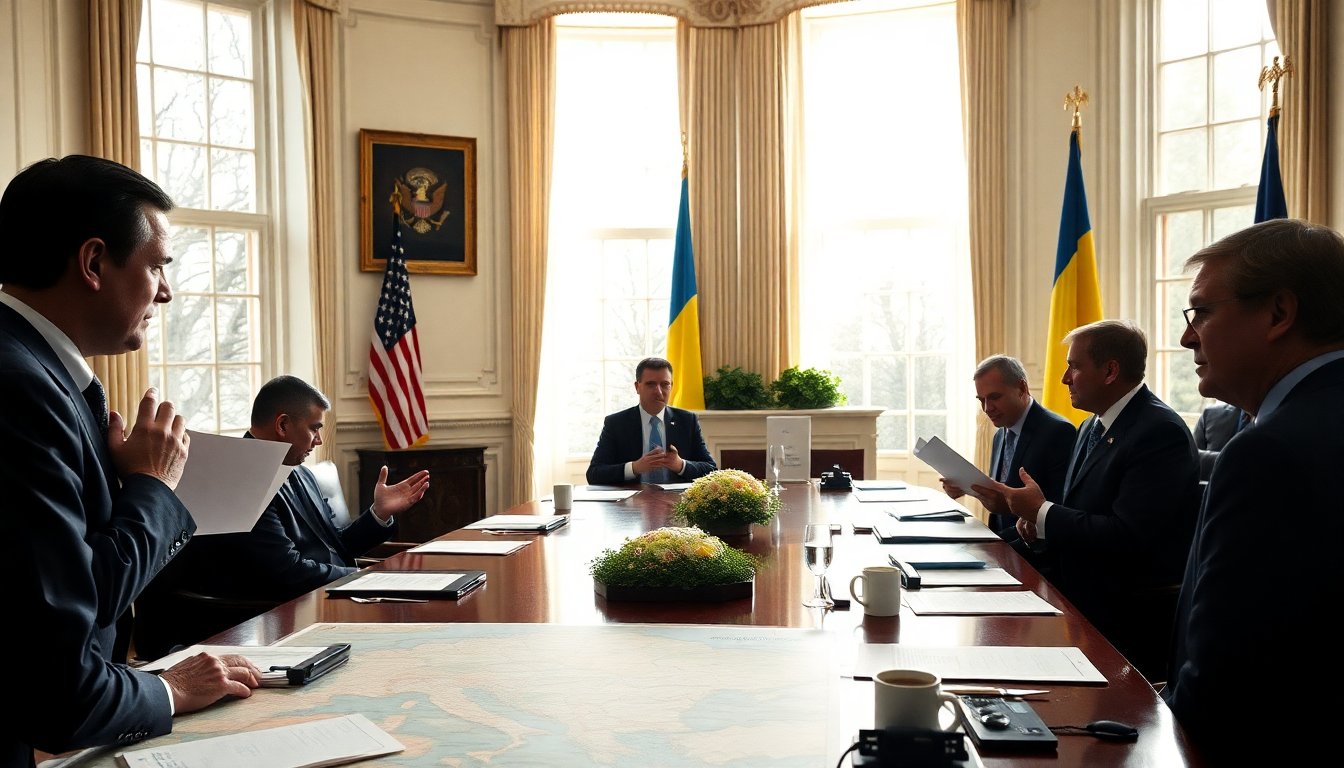Table of Contents
In a significant diplomatic encounter, Ukrainian President Wolodymyr Selenskyj will meet with former U.S. President Donald Trump in Washington. The main agenda focuses on obtaining approval for the deployment of Tomahawk cruise missiles to Ukraine, potentially extending military operations into Russian territory. Just before this meeting, Trump spoke with Vladimir Putin about plans for an upcoming meeting in Budapest, though no specific date is disclosed.
The facts
This situation reveals a complex web of geopolitical maneuvers. Security advisor for the Munich Security Conference, Nico Lange, discussed the motivations behind Trump’s peace strategy and its implications for Germany’s role in the evolving landscape. The pressure on Chancellor Friedrich Merz to authorize the delivery of Taurus missiles remains a significant concern.
The evolving nature of warfare
The conflict in Ukraine has transformed the nature of warfare. Traditional infantry battles are being replaced by drone warfare and advanced technology in combat. Lange emphasizes Europe’s need to improve its capabilities in standoff weapons to ensure security and effectiveness in future conflicts.
Shifts in military tactics
The transition from conventional ground engagements to aerial and remote operations marks a pivotal change in military tactics. This shift necessitates a reevaluation of Europe’s defense preparations. Lange stresses the urgency for European nations to invest in modern warfare technologies, asserting that standoff capabilities are crucial for maintaining sovereignty and deterrence.
Looking ahead: NATO’s future strategy
As the summit unfolds, attention will focus on Trump’s potential strategy regarding NATO. The implications of America’s future role in Europe are critical amid ongoing security challenges. Will Trump’s diplomatic overtures indicate a renewed commitment to NATO, or will they reflect a more transactional approach to U.S. foreign policy?
The EU’s strategic autonomy
The discussion underscores the urgent need for the European Union to act strategically and autonomously. Can the EU effectively devise and implement a cohesive defense strategy before circumstances dictate otherwise? The urgency cannot be overstated, as the balance of power in Europe and beyond hangs in the balance.
The upcoming meeting between Selenskyj and Trump represents more than a diplomatic encounter; it is a pivotal moment that could reshape military alliances and strategies in response to evolving threats. The world watches closely as these leaders navigate complex geopolitical terrains, hoping for proactive measures to ensure stability and security in the region.


